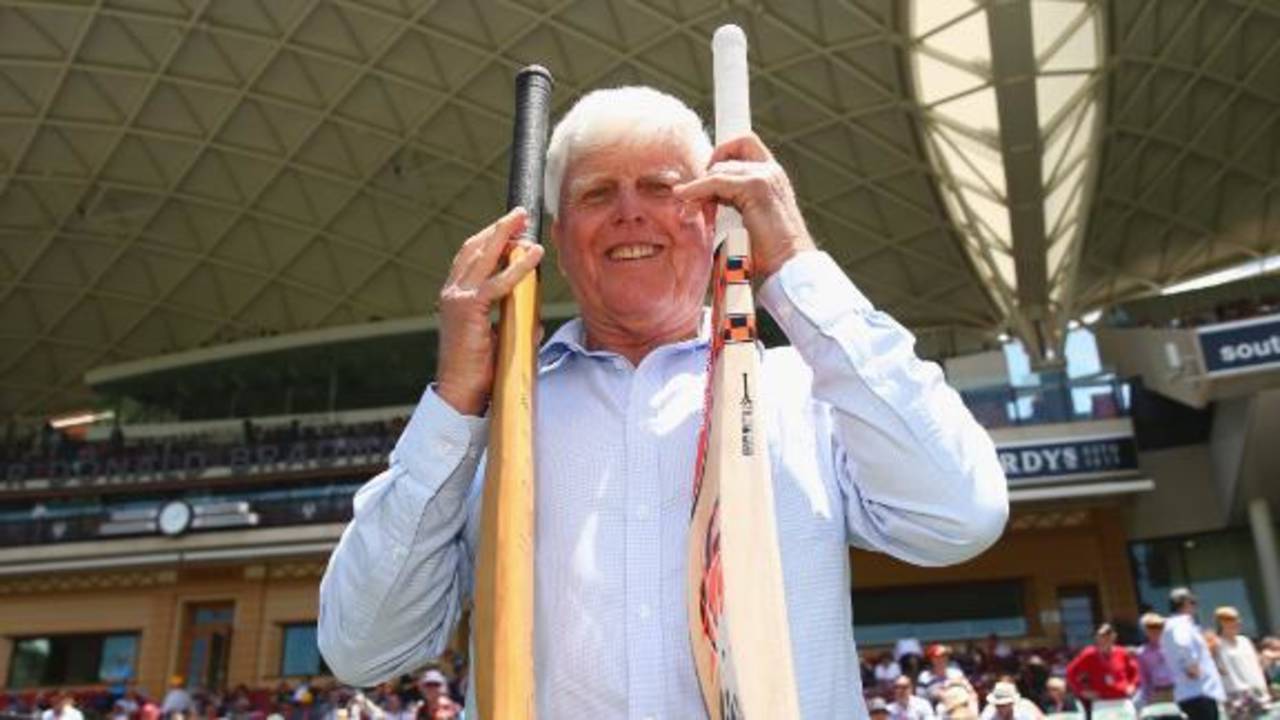MCC sticks with present ball-tampering law
Complications arising from the Faf du Plessis ball-tampering episode forced a rethink of the rule, but the MCC world cricket committee has resisted making changes to Law 42.3
Sidharth Monga in Mumbai
07-Dec-2016
Complications arising from the Faf du Plessis ball-tampering episode forced a rethink of the rule, but the MCC world cricket committee has resisted making changes to Law 42.3. Du Plessis, the South Africa captain, was caught on camera using a mint in his mouth to shine the ball during the recent Hobart Test. The ICC found him guilty of ball-tampering, though du Plessis has appealed the verdict.
The case raised three issues with the law. Du Plessis argued the law was not clear: how was, for instance, Gatorade-affected saliva different from mint-laden saliva? Many players - recently and long retired - admitted to contravening the law, saying using lollies, mints and sweets was the line the players themselves drew. Even if it was argued that the law was clear, the policing of it - especially the role of the broadcaster as was the case with du Plessis - was ambiguous.
MCC's world cricket committee sought to address all three issues. The law, it said, was clear, and spelling out banned substances would always leave room for exploitation. "To try to be too prescriptive by listing banned substances would be counterproductive, as something will be missed in the process of such drafting," the MCC release said.
John Stephenson, MCC's head of cricket, reiterated that the law was not ambiguous. "My advice to them [confused players] would be to not contravene the law, which is very clear. I was part of that [du Plessis] hearing. In my opinion what he did flagrantly contravened the law. He put his finger straight on the mint, straight on the ball, and was caught on camera. It is really a very clear case of ball tampering."
Mike Brearley, chairman of the MCC world cricket committee, said that other players' admission cannot be a valid defence. "If you speed you'd probably get away with it," Brearley said. "But not everyone does. Sometimes you are caught. And when you are caught flagrantly doing something, you deserve to face the penalty, whatever that penalty is. Which seems to me as far as I know is what happened to Faf du Plessis. The fact that other people do it doesn't mean that you shouldn't catch the odd person who does it flagrantly."
That du Plessis was not caught by on-field umpires raised questions about the host broadcaster's role in bringing the issue to light. It is near impossible for umpires or the match referee to catch someone shining the ball illegally without the use of cameras. When Rahul Dravid was caught using a lozenge on the ball, it was done through live footage. In du Plessis' case, footage was the incriminating evidence and the MCC admitted it was a concern.
"We were slightly concerned about host broadcasters," Brearley said. "There will be a lot of focus now on people, especially on him [du Plessis] and the South African team I daresay at the moment, and it could be used by home broadcasters. That could happen anyway. After a while it will lose its prominence. Anyway people have to behave. They have to do things according to regulations and laws."
Stephenson said they did not want cameras constantly following players when they were shining the ball. "That's certainly not what we want. But as Mike said, if you are not breaking the laws, you have got nothing to worry about," he said. "As we all know shining the ball is part of the art of cricket. We want the ball to swing. But it was pretty obvious to me when I saw the footage. You couldn't argue with the fact that his [du Plessis'] fingers went straight on the mint and straight on the ball."
Former Pakistan batsman Ramiz Raja, a committee member, reassured players about unfair examination by cameras. "Mike put it absolutely brilliantly," he said. "You must not get caught. It is as simple as that. I think the broadcasters are not looking for such incidents and episodes. Nobody wants this game to be controversial. I think the players are experienced enough to know what's the done thing. Try to live within the perimeters as prescribed, I think let's leave the tampering law as it is."
ESPNcricinfo understood that broadcasters do not seek out players shining the ball. Their cameras have been known to look away when players shine the ball, irrespective of the team they belong to. The issue is certain to come up at a meeting of the ICC cricket committee. While the laws of cricket are formulated by the MCC, the ICC has its own playing conditions that supplement the laws. So a rethink on ball-tampering cannot be ruled out yet.
Sidharth Monga is an assistant editor at ESPNcricinfo
